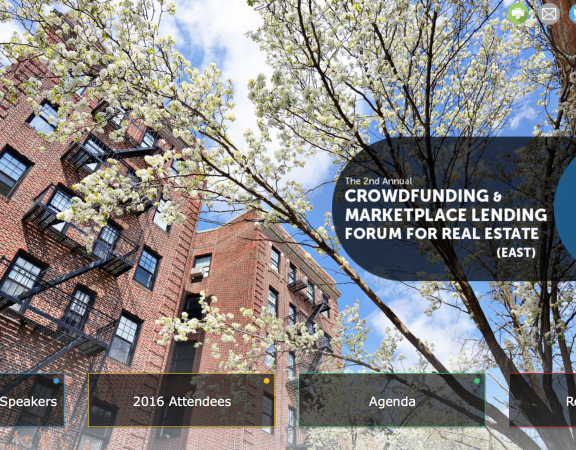Real estate crowdfunding is growing in popularity and for good reason. Before you decide to take the plunge, though, consider the two types of investing available to you.
The Two Types in Simplest Terms
Though we’ll go through the various decisions you need to think about before moving forward with one or the other, let’s begin by breaking down your two options in simplest terms.
If you decide to enter into real estate crowdfunding as a debt investor, it will be like you’re the bank or lender in a traditional mortgage scenario. You lend money to the person purchasing the property. That loan is then secured by the property, but you’re not actually an owner.
Just like a bank or lender, if the borrower ends up defaulting on their promise of repayment, you can foreclose on them, take the property, and get your investment back that way (hopefully).
On the other hand, if you decide to be an equity investor, then you’re more like the traditional kind of investor most of us tend to think of. You put a certain amount of money up to be used by the borrower, but again, you’re never an owner. Instead, you’re more like a shareholder in the home or commercial property.
Although your loan isn’t secured by the property in the same way it would be as a debt investor, you do get the benefit of residual value after debt, meaning when the property sells, you’ll be entitled to a return (the same goes for rent on a commercial property).
Now that we’ve spelled out the basics of these two kinds of investing, let’s take a closer look at them from your perspective. The following criteria should help you decide which option is right for you.
How Much Risk Can You Handle?
This is always a good place to start for any type of investment and such is definitely the case with real estate crowdfunding ventures. You need to think about how much risk you’re willing to accept.
As with any investment, the more you learn about your options, the more your exposure to risk dissipates. Of course, you may learn enough about a particular property that you decide it’s simply not worth your money. Whatever the case, you need to spend time looking at any investment you consider before putting money toward it or your risk will always be unnecessarily high.
That being said, debt investments are considered to be the less risky of the two. For one thing, you have a capped potential, so you always know what to expect as a return. You also get paid first, so to speak, whereas, as an equity investor, your potential payout goes through the LLC first.
The other obvious advantage to being a debt investor is that you have the property to fall back on. That isn’t a guarantee that you’ll get all your money back, but should your borrower not live up to their end of the bargain, you have leverage to renegotiate or simply foreclose on them, sell it and get as much money back as you can.
Return Potential
You can probably guess the answer here. Nothing ventured, nothing gained, as they say, and when it comes with investments, the more you venture, the more you could potentially gain.
With more risk comes a chance at greater rewards. If you can handle a bit more of a gamble, then an equity investment may be right for you. That uncapped potential on your investment means you could end up making much more if the property appreciates. Another reason people don’t mind the idea of more risk is because an equity property could pay out for the rest of your life. Think about an apartment building compared to a home. As long as rent is coming in, the former will keep on delivering you payouts (and if ever stops because it gets sold, you get a cut). Once a home is paid off, though, you’re returns as a debt investor are all dried up.
However, in terms of how much money you actually put in, the risk can vary between these two. As we’ll discuss a bit more in a moment, you could put a lot less into become a stakeholder in a hotel as part of an equity investment LLC. In order to join others in offering a loan for a home, you might have to put in more.
Typical Investment Opportunities
To some of you, it may not matter what type of structure you’re actually investing in. There’s a lot to be said for deciding how much you can invest, how much you’re willing to expose yourself to risk, what kinds of returns you need and how you receive them and then deciding on the types of properties to invest in after that.
At the same time, some people like the idea of owning stake in a hotel or commercial property (e.g. an office building, warehouse, etc.).
Debt investors typically own stakes in single-family homes and apartment buildings. Equity investors may also find their money in these properties, but they can also branch out into hotels and office buildings. As a debt investor, it simply isn’t practical to try stretching your reach that far.
Where the Crowds Are
Finally, you may like to know where others have been investing with real estate crowdfunding. Though the market is constantly growing, roughly 80% of those who have been a part of it have gone the equity route. The other 20% have been debt investors.
You Don’t Have to Choose
Although crowdfunding for real estate is still a very new method, some reliable rules still apply. There’s something to be said for choosing one of these two types of investing and sticking with them for the foreseeable future, so you learn the ropes and know what to expect down the line.
At the same time, one of the golden rules of investing is to diversify your portfolio. If the housing market is ever hit hard again, those who have both equity and debt investments will be the likeliest to withstand the impact.
As we mentioned earlier, one of the most important things is simply taking your time to assess any given opportunity. While it’s important to know the difference between these investment types, it won’t matter much if you become trigger-happy with your money.
Matthew Sullivan
@thecrowdventure
www.crowdventure.com
image by Shutterstock





